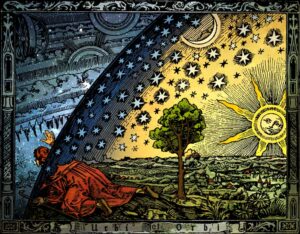In Man and his Becoming, Rene Guenon claims that
Among those who receive the same teaching, each one understands and assimilates it more or less completely and profoundly according to the extent of his own intellectual possibilities; and that is why selection comes about quite naturally, without which there could be no genuine hierarchy.
 Although very few take that quote seriously, it is certainly empirically verifiable. Recently, someone brought to my attention an article by an academic who tried to show that Guenon’s “explanation for the origin of religions” does not survive historical scrutiny. Hence, his explanation is no better than those of Marx or Freud. Unfortunately for that hapless academic, Guenon was doing no such thing. Quite the contrary in fact. In The Esoterism of Dante, Guenon responds to the question of whether Dante was Christian or pagan. He explains:
Although very few take that quote seriously, it is certainly empirically verifiable. Recently, someone brought to my attention an article by an academic who tried to show that Guenon’s “explanation for the origin of religions” does not survive historical scrutiny. Hence, his explanation is no better than those of Marx or Freud. Unfortunately for that hapless academic, Guenon was doing no such thing. Quite the contrary in fact. In The Esoterism of Dante, Guenon responds to the question of whether Dante was Christian or pagan. He explains:
we do not think that such a point of view is necessary, for true esoterism is something completely different from outward religions, and if it has some relationship with it, this can only be insofar as it finds a symbolic mode of expression in religious forms. Moreover, it matters little whether these forms be of this or that religion, since what is involved is the essential doctrinal unity concealed beneath their apparent diversity.
If esoterism is “completely different” from outward religions, how could anyone knowledgeable possibly conclude that Guenon is trying to explain the origin of outward religions? Nevertheless, he does provide an example of a “symbolic mode of expression” in The Symbolism of the Cross:
This symbolical character, while common to all historical events, is bound to be particularly clear-cut in the case of events connected with what may be called “sacred history”; thus it is recognizable in a most striking way, in all the circumstances of the life of Christ.
The great Russian philosopher, Vladimir Solovyov, understood this independently. He noted, in Lectures on Divine Humanity, that Christianity did not create a new metaphysical system; instead it relied on Neoplatonism and the Hermetic philosophy of Egypt to fill that role. What made it distinctive, in his view, is the historical events of the life of Jesus.
Guenon ends with a more controversial conclusion.
it matters little whether these forms be of this or that religion, since what is involved is the essential doctrinal unity concealed beneath their apparent diversity. This is why in the past, initiates participated in all forms of worship, following the customs established in whatever country they happened to be.
In that regard, Guenon followed his own teaching, unlike his many epigones.
Leave a Reply